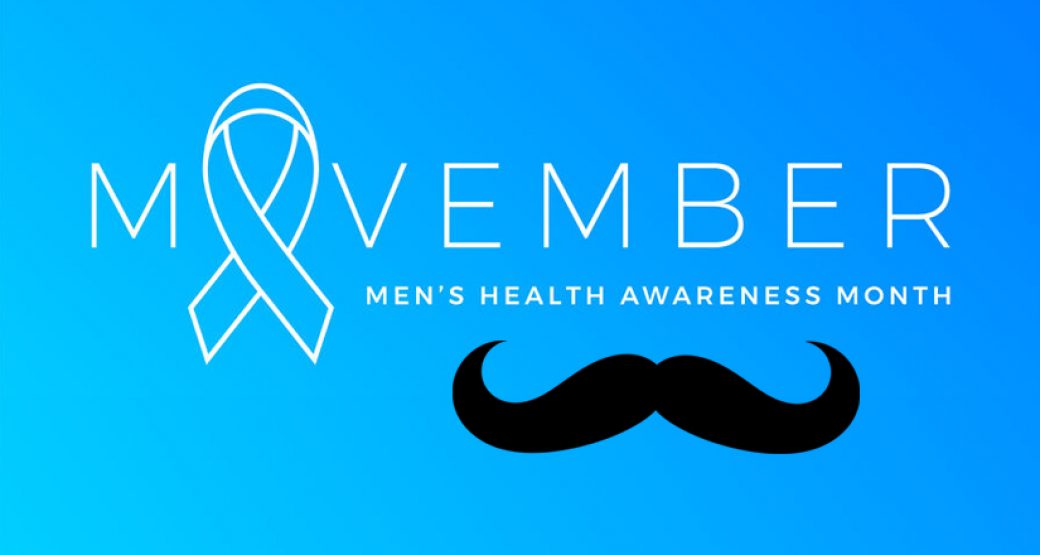
The Centers for Disease Control (CDC) estimates that of all men over the age of 18, 12.4% are in fair or poor health, 31.6% have had five or more drinks in one day on at least one occasion in the past year, 17.8% are smokers, and 34.5% are obese.
Whew. Those are some heavy statistics, am I right?
If you are an adult male and fall into any of these categories (or even if you don’t!), you should know that June is Men’s Health Awareness Month! It is the perfect time to give your health a checkup.
So – let’s talk about preventive health screenings.
Prostate Cancer Screening
The experts at Johns Hopkins Medicine state that prostate cancer is the most prominent cancer amongst all man, aside from skin cancer. Your risk is even higher if you are African-American or have a family history of prostate cancer.
Screening for prostate cancer typically begins at the age of 50, but your physician will screen you earlier if you have an increased risk of developing prostate cancer:
- Age 50 for men of average risk of developing prostate cancer and those who have a life expectancy of greater than 10 years.
- Age 45 for men with a high risk of developing prostate cancer; this includes African-American men and men who have had a first-degree relative, such as a father, brother, or son, diagnosed with prostate cancer at a young age, which is considered less than 65.
- Age 40 for men with a very high risk of developing prostate cancer; this includes men who have had multiple family members who have developed prostate cancer at a young age.
Prostate cancer screening entails a blood test, called the prostate-specific antigen (PSA) test, as well as a digital rectal exam (DRE).
Re-screening for prostate cancer is as follows:
- Yearly for men with a PSA level of 2.5 ng/mL or higher.
- Ever two years for who men who have a PSA level of less than 2.5 ng/mL.
Diabetes
There are millions of people living with type 2 diabetes. And of those millions of people, there are more men than women. According to the National Diabetes Statistics Report, 2014, there were approximately 21 million diagnosed people with diabetes, and 8.1 million undiagnosed people. Broken down my gender, it is estimated that there are 15.5 million men with diabetes and 13.4 women with diabetes.
Diabetes is often thought of as a “silent disease” because there is rarely any symptoms until the disease has progressed; this is why upwards of one-third of people with diabetes are undiagnosed!
However, routine screening for diabetes is important – and very simple. All it takes is a blood test.
There are several blood tests that your physician can utilize to diagnose diabetes:
- Glycated hemoglobin test, also referred to simply as an “A1c” test, this blood test averages your blood glucose levels for the past two to three months. It is measuring the percentage of glucose that is attached to the hemoglobin – when your blood glucose levels have been running high, you will have more hemoglobin with glucose attached. A value 5.7 to 6.4 is considered prediabetes, while a value 6.5 and above is considered diagnostic for diabetes.
- Random blood glucose test is drawn at a random time. Regardless of when food was consumed, a blood glucose value of 200 mg/dL or higher is suggestive of diabetes, especially if the classic symptoms of diabetes are present (for example, excessive thirst and urination).
- Fasting blood glucose test is drawn when you are fasting, without any caloric intake for at least eight hours. A glucose level of less than 100 mg/dL is less is considered normal, 100 to 125 mg/dL is indicative of prediabetes, and 126 mg/dL and greater on two separate occasions is considered type 2 diabetes.
Heart Disease
Heart disease – we’re all a bit nervous about this one, but many people feel that it is inevitable. After all, our grandfather may have had it, and so does our mother and our brother – so we’re doomed, right?
Genetics certainly has a lot to do with development of heart disease. But that doesn’t mean that you should blindly allow yourself to develop heart disease! Being screened routinely will help you to understand your risk – once you understand your risk, then you can fight back!
There are several tests that are used to screen for heart disease – more accurately known as cardiovascular disease. Because heart disease envelops multiple different organs and not just the “heart”, your physician must also screen multiple different parts of your body:
- Blood pressure should be obtained at a minimum of once every two years if your blood pressure is normal at less than 120/80 mm Hg. However, it is likely that your blood pressure is monitored more frequently than that – it is often a routine part of every appointment!
- Cholesterol blood draws include triglycerides, total cholesterol, HDL (the “good” cholesterol) and LDL cholesterol (the “bad” cholesterol). If your lipid panel is normal, it will be drawn every four to six years, but more frequently if you have abnormal values.
- Body weight/body mass index is typically obtained during regularly at appointments.
- Waist circumference is measured as needed. A waist circumference is used to calculate cardiovascular risk, especially if your BMI is greater than or equal to 25 kg/m2.
- Blood glucose test should be drawn every three years, if your glucose levels are normal.
The Bottom Line…
Prostate cancer, diabetes, and heart disease are three of the most prevalent disease to affect men. Although you should screen for these regularly, as recommended by your physician, if you have not kept up-to-date,



